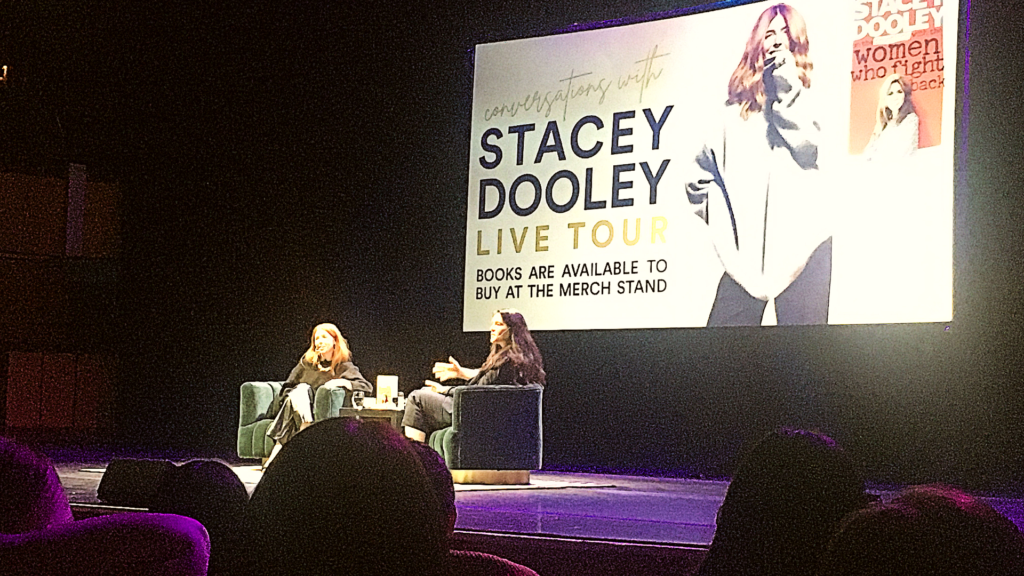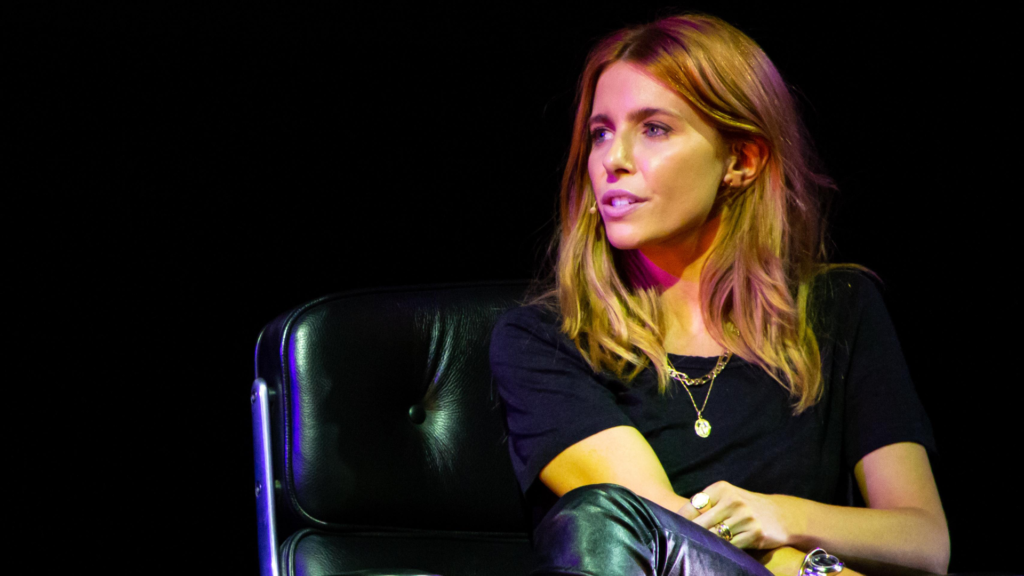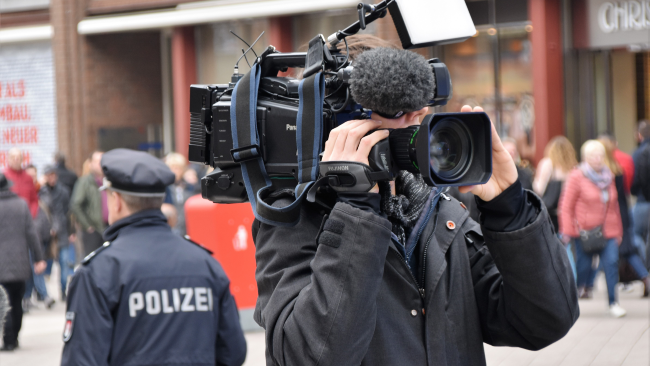What does it take to be a successful journalist documenting human suffering and despicable crimes in the world’s most hostile environments? Here are our top five tips for aspiring journalists inspired by Stacey Dooley’s talk in Cardiff.

From the front line of the fight against Isis in Iraq to a raid on a cocaine lab in the Peruvian jungle, Stacey Dooley has travelled to some of the most dangerous places in the world uncovering important and often untold stories.
The documentary filmmaker and journalist left school at 15 years old and was working in Luton airport at the time a producer asked if she fancied her own series after appearing as a contributor on BBC Three’s ‘Blood, Sweat and T-Shirts’ (2008).
“I’ll see if I can get my shifts at the airport covered,” was her first thought.
As she says, she didn’t exactly have the most conventional start to her journalistic career.
Over 80 documentaries later, Dooley has investigated terrorism, international drug gangs and paedophilia, to name a few, consistently achieving top ratings for her BBC Three programmes.
Speaking on 21st February at Cardiff’s St. David’s Hall on a rare break from filming for her next documentary, Dooley discussed some of the remarkable experiences she has had so far and the challenges journalists face in today’s highly polarised political landscape.
Empathy, compassion and inquisitiveness are crucial qualities for any good journalist to have, says Dooley, speaking as part of her ten-date UK tour.
Drawing on her experience as an investigative reporter and presenter, as documented in her Sunday Times Bestselling book On the Front Line with the Women Who Fight Back (2018), Dooley’s talk with interviewer Jessie Ware was rich with tips for aspiring journalists in today’s world.
We’ve handpicked our top five tips inspired by Stacey Dooley’s talk to help you become a successful journalist.

1. Be real and relatable: don’t conform
Stacey’s relatability makes her so unique among top journalists, says interviewer Jessie Ware. Regularly described as “accessible” and “a breath of fresh air” by others in her industry and viewers alike, Dooley attributes these qualities to her success in securing her first commission.
Although sometimes criticised for being too overly emotional and having no professional journalism qualifications, it is exactly her authenticity, relatability and empathetic approach that set her apart from the largely privately-educated, middle-class journalists dominating the current affairs field.

2. Authenticity is crucial: find your own journalistic style
Being authentic is key to being a successful journalist, according to Dooley.
In her 2016 ‘Stacey on the Frontline: Girls, Guns and Isis’ documentary, live shots are fired on the very frontline she is reporting from, just over one kilometre away from Isis. Watching this clip back, along with the audience at her Cardiff event, Dooley cringes at her own terrified face and ducking actions as the loud bangs sound.
“I really want to include this bit, but you look like a moron, Stace,” her producer had said while putting the final edit together. Dooley says she was happy to include it because it’s a normal reaction to gunfire that any audience member unfamiliar with a warzone would have, conveying the true horror of the situation.

3. Detach from work: personal and professional boundaries are key
When covering difficult and often harrowing topics like Dooley does, having healthy work-life boundaries is crucial to maintaining your own mental health and consistently producing a high standard of journalism.
Speaking about the long time periods she sometimes spends with people to build trust before interviewing them, as well as the personal stories they often share with her, Dooley says it is hard not to grow fond of them.
“It’s all-consuming when you’re on location. I try to give them everything when I’m there,” says Dooley. Travelling from place to place, making sure it’s factually accurate and ensuring you have consent from interviewees keeps you busy all the time, she says.
“I try to detach myself when I’m home. Let’s listen to Little Mix,” says the documentarian, “and enjoy life.”

4. Find the line between empathy and emotion
Of course it’s important to empathise with people who have been through hell, Dooley says – and many of her interviewees have. People want to see that you care, she says; that’s why you’re there reporting and telling their stories.
But, there is a delicate balance to strike between being empathetic and being overly emotional.
“I was way too emotional in my first docs,” says Dooley, referring to her emotional reactivity to protesting people shouting ‘you look naked’ to her on the street in her 2013 documentary about extremism in Luton.
At the time she engaged in a shouting match rather than responding calmly and professionally; Dooley says she has learnt from this experience and is now more emotionally reserved in these kind of situations, aiming to understand where the people she is talking to are coming from.

5. Remember your work isn’t about you; it’s about your interviewees
Tensions can run high when interviewing people you strongly disagree with, especially when those interviewees are terrorists who have committed heinous crimes. It can be difficult not to let your emotions run away with you, but it’s important to remember that you are there to tell the story of your interviewee.
In ‘Face to Face with Isis’ (2018), Dooley sits down to confront a captured Isis commander with a woman named Shireen, who is a survivor of torture, rape and other horrors at the hands of Isis.
“It’s a rage that’s hard to articulate,” says Dooley, “because you know what he’s done and you know what he stands for and you know what Shireen has been through.”
Mindful of the fact that the interview is not about her, Dooley says she has to allow Shireen to have her moment and confront the man with her questions. Rather than allowing her anger to bubble over into reactivity, she gives the space to Shireen and is a calm and strong presence, asking tough questions when needed.
All aspiring journalists can learn from Dooley’s example, maintaining professionalism at all times, yet being empathetic towards interviewees who have suffered unimaginable horrors.
Good luck in your journalistic career and remember not to follow the crowd, but find your own style.

